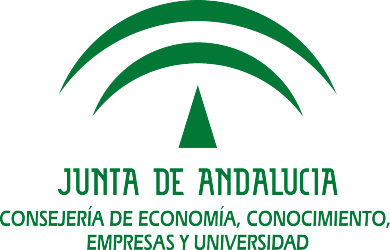Seminario: Food reward during weight loss
Food reward during weight loss: Does dieting make individuals like food less or more?
- Organiza: Unidad Científica de Excelencia Ejercicio y Salud (UCEES) con la colaboración del Dpto. de Educación Física y Deportiva, Pymtec Material Técnico S.L. y Maastrich Instruments.
- Fecha: 25 de Octubre de 2019, a las 12:30
- Lugar: Instituto Mixto Universitario Deporte y Salud
- Imparte: Pauline Oustric
Pauline is a third year PhD student in Biopsychology at the University of Leeds. As an Engineer in Nutrition from AgroParisTech, her background covers major challenges in nutrition from the field to the fork. She is interested in multidisciplinary challenges around food reward, eating behaviour and weight management. Her PhD is investigating the biopsychology of food reward to improve weight management. Her supervisors are Prof. Graham Finlayson, Dr Catherine Gibbons, Dr Kristine Beaulieu and Prof. John Blundell.
Decisions about what and how much we eat play a central role in weight management. Indeed, food is a highly accessible reward in our obesogenic environment, which can lead to overconsumption.
Food reward is both the pleasure we get from food and the drive to eat a specific food. Therefore, it is defined as a process that guides our eating behaviour. Currently, weight management interventions tend to be based on multidisciplinary lifestyle modification including dietary, exercise, behavioural and cognitive components.
However, food reward seems not to have been examined as a mechanism for improving or undermining weight management. Consequently, my PhD thesis aims to investigate the role of food reward in weight management in the long-term, and at cross-sectional points.
This presentation will firstly discuss the methodology to measure food reward (i.e. the Leeds Food Preference Questionnaire (LFPQ)) and the latest work to improve this methodology (cultural adaptation, app version, statistical analysis). Then the current results related to changes in food reward during weight-loss will be discussed.
Our systematic review counter-intuitively revealed that liking and wanting for high-energy food mostly decreased after weight loss. This result was confirmed by a longitudinal weight management randomised control trial (DIVA) exploring the effect of two dietary interventions (continuous or intermittent energy restriction) on changes in food reward during weight loss.
The specific effect of the type of diet and of the duration of the energy restriction have been investigated. Biopsychological markers of changes in food reward and their relationship with food intake have been analysed.
Individual variability in the changes in food reward will be discussed to try to understand why some individuals like food less or more after the diet intervention. This thesis will bring new insights into the role of food reward during weight management and may offer recommendations for improving weight management outcomes.
- Esta actividad está cofinanciada por la Universidad de Granada, Plan Propio de Investigación 2016, acciones de Excelencia, y por la Junta de Andalucía, Consejería de Conocimiento, Investigación y Universidades y el Fondo Europeo de Desarrollo Regional (FEDER, ref. SOMM17/6107/UGR)



